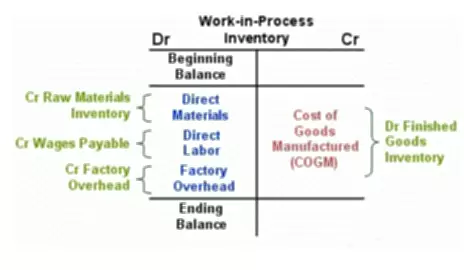What is Qualified Business Income Deduction? Learning Center Start investing in rental properties

Generally, qualified business income refers to the business’s profits. Qualified business income does not include salary or wages paid to the taxpayer either as W-2 wages from a S corporation or guaranteed payments from a partnership. With more than a million small business clients, our tax pros can help you prepare a Schedule C and claim the qualified business income deduction– and optimize your small business’ tax outcome. In addition, we provide bookkeeping and payroll services, to help you get back to running the business you love. Some types of businesses, called specified services trades or businesses (SSTBs), may not be eligible for the entire QBI deduction if the incomes of the owners are above certain limits, which change every year. These SSTBs include businesses involving the performance of services based on the reputation or skill of employees or owners (like health care, law, accounting, performing arts, consulting, athletics, financial services, and investing).
- Still other business owners have evaluated the merits of changing their business entity structure around the 2017 Tax Cuts and Jobs Act changes, including the QBID.
- We can help you get the most out of this provision and all other tax breaks in the TCJA.
- After a taxpayer chooses to aggregate two or more businesses for QBI deduction purposes, he or she must continue to aggregate the businesses in all subsequent tax years.
- (C) Attributes of disallowed loss determined in year loss is incurred.
- Because 80% of A’s allocable loss is attributable to QBI ($80,000/$100,000), A will reduce the amount A takes into account in determining QBI proportionately.
If section 852(b) applies to a regulated investment company (RIC) for a taxable year, the RIC may pay section 199A dividends, as defined in this paragraph (d). Another way of gauging the potential economic benefits from these regulations is to consider them relative to the investment returns currently flowing to REIT investors through RICs. First, the amount of your taxable income is taken into account when determining if you can claim the full 20 percent deduction. In pass-through businesses, the income from the business is taxed on the owner’s personal tax return.
Who can take the pass-through deduction?
Get matched with a dedicated small business tax expert, enjoy unlimited year-round advice and answers at no extra cost, and be confident that our small business tax experts will help you find every tax deduction and credit your business deserves. Using the simplified form to claim the pass-through deduction can save a lot of paperwork. The expanded version of the form, 8995-A, has four sections plus four additional schedules, used to calculate the business’s qualified business income, potential deduction phaseouts, and the resulting deduction. You can determine whether you get the full 20 percent deduction, a limited deduction, or no deduction at all based on your total taxable income. The deduction is limited to the lesser of the QBI component plus the REIT/PTP component or 20 percent of the taxpayer’s taxable income minus net capital gain.
Case: M.B.A. Student Cannot Deduct Educational Expenses That … – Bloomberg Tax
Case: M.B.A. Student Cannot Deduct Educational Expenses That ….
Posted: Thu, 22 Jun 2023 17:59:16 GMT [source]
IRS stated the regulations provide guidance on the treatment of previously suspended losses included in qualified business income. IRS further stated the regulations also provide guidance on the determination of the section 199A deduction for taxpayers that hold interests in regulated investment companies, split-interest trusts, and charitable remainder trusts. If the individual’s taxable income is at or below the threshold amount in the year the loss or deduction is incurred, the entire disallowed loss or deduction must be taken into account when applying paragraph (b)(1)(iv)(A) of this section. If the individual’s taxable how do annuities work– nationwide income is within the phase-in range, then only the applicable percentage, as defined in § 1.199A-1(b)(2), of the disallowed loss or deduction is taken into account when applying paragraph (b)(1)(iv)(A) of this section. If the individual’s taxable income exceeds the phase-in range, none of the disallowed loss or deduction will be taken into account in applying paragraph (b)(1)(iv)(A) of this section. Beyond any potential compliance cost reduction, several other economic benefits result from these regulations, including those flowing from enhanced financial diversification and reduced information-gathering costs.
Qualified business income
Another thought is converting non-QBI into QBI by spinning off certain areas of a business (such as information technology, human resources, as well as certain assets like intellectual property or business owned real estate) into separate entities. The IRS could challenge this on the grounds of not having economic substance. One way to get around this IRS argument would be not having a similar ownership structure, though this may not be feasible in many circumstances.

While we have not attempted to quantify the economic benefits of these effects, we project that they are likely to be substantial as well. We estimate that up to $6.0 billion in REIT dividends accrued to individual taxpayers through RICs in taxable year 2018. Of this, $5.6 billion went to taxpayers with positive taxable income, who thus could potentially use section 199A deductions. This corresponds to aggregate potential deductions of up to $1.1 billion (20 percent of $5.6 billion). Thus, relative to the no-action baseline, these regulations provide up to $336 million in annual benefits by allowing investors to avoid these costs. The second requirement to take the QBID is that the pass-through business must have qualified business income for the tax period.
Small Business Services
And, for certain businesses that provide services such as law firms, accounting firms, and doctors’ offices, the limitations are steeper and the deduction is phased out altogether when taxable income reaches $207,500 ($415,000 for joint filers). The qualified business income deduction is available to eligible small business-owning taxpayers, whether the business owners itemize deductions or take a standard deduction. S-corporation owners and partners (including owners of LLCs taxed as partnerships) calculate the QBI deduction differently. First, the total QBI for the business is calculated on one of the two forms above. Then, each owner’s share of the QBI is calculated and entered in a separate line on the owner’s Schedule K-1, along with other income of the owner. The information on Schedule K-1 is entered with the owner’s other income on the owner’s personal tax return.
What qualifies as qualified business income?
QBI is the net amount of qualified items of income, gain, deduction, and loss from any qualified trade or business, including income from partnerships, S corporations, sole proprietorships, and certain trusts.
The Treasury Department and the IRS received several comments addressing conduit treatment for qualified PTP income earned by a RIC. Two commenters recommended that conduit treatment be extended to qualified PTP income earned by RICs, excluding any items attributable to SSTBs. Both commenters suggested that any losses allocated to RICs from PTPs could be carried forward by the RIC for purposes of section 199A. Another commenter suggested methods by which RICs could track, and pay dividends attributable to, an SSTB of a PTP. As a small business owner, you can’t automatically get the Section 199A deduction – a little extra paperwork is necessary. You should claim the QBI deduction on your federal income tax return on Form 1040 via Form 8995 or Form 8995-A.
Who is eligible to take advantage of the QBI deduction?
They’re here to help you figure out what you need to do to minimize your tax liability and improve your operations. No more lost hours trying to figure out the technicalities, just savings. We believe everyone should be able to make financial decisions with confidence.

What is the purpose of the qualified business income deduction quizlet?
Congress accomplished this with the creation of the deduction for qualified business income, which applies to noncorporate taxpayers. Congress provided a means of reducing the taxes on businesses that operate in different noncorporate business forms by creating the deduction for qualified business income.